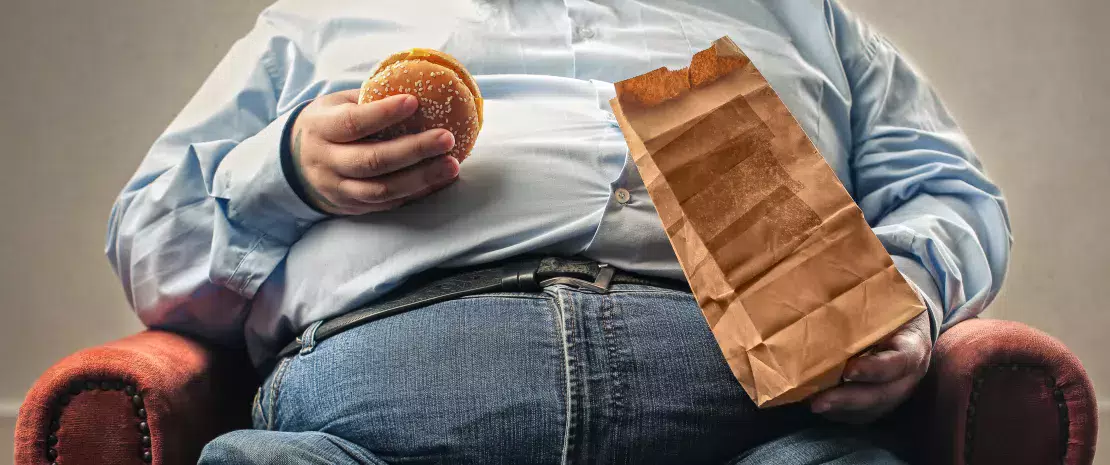Obesity and microbiota: A bacterium worsens the effect of a high-fat diet
Is obesity the consequence of over-eating and a high-fat diet? It’s not that simple. The composition and metabolism of the bacteria in our gut microbiota are also believed to play a role in obesity. A recent study published in the journal Cell Metabolism reveals that in cases of a high-fat diet, the species Fusimonas intestini seems to promote weight gain by producing harmful fatty acids.
- Learn all about microbiota
- Microbiota and related conditions
- Act on your microbiota
- Publications
- About the Institute
Healthcare professionals section
Find here your dedicated section
Sources
This article is based on scientific information

About this article
Obesity and its accompanying metabolic disorders, such as type 2 diabetes, are taking an increasing toll on public health worldwide. For many sufferers, just correcting the diet is not a good enough solution. Over the past ten years or so, various studies have highlighted the role of the gut microbiota in obesity. It may explain, at least in part, individual differences in vulnerability to obesity and the effects of diets. However, not all the mechanisms involved have been elucidated yet. Researchers are therefore exploring the specific composition and functioning of the microorganisms of the gut microbiota that can influence obesity.
Microbiota bacteria that “make fat”
We all know that a diet that is too rich in fats, especially saturated fats, increases the risk of obesity. But the bacteria of the gut microbiota also produce fatty acids. To what extent and in what way could their metabolism contribute to the development of the condition? To answer this question, a Japanese team from the research institute RIKEN looked at the Lachnospiraceae, a bacterial family in the gut microbiota that has already been linked with obesity and type 2 diabetes in previous studies. The team showed that one of the bacterial family’s species, Fusimonas intestini, is significantly more present in the gut microbiota in individuals with obesity and high blood sugar, in both mice and humans.
The gut microbiota
To determine whether this bacterium could be a cause of obesity, the researchers compared mice whose gut microbiota was colonized by Fusimonas intestini or not, fed normally or fed a high-fat diet. They found that the “fatty” diet increased body fat gain in the presence of Fusimonas intestini bacteria even in very small amounts.
Hindered metabolic genes and leakage through the intestinal barrier
The researchers found that Fusimonas intestini produced an abundance of various “long-chain” fatty acids. Only under the effect of the high-fat diet, the gut microbiota colonized by this bacteria contained twice as much elaidate, a
(sidenote:
Trans fatty acid
Trans fatty acids (TFAs) are not synthesized in the human body but are generally consumed in our meals. They come from ruminants (via meat and dairy products) or are of industrial origin. TFAs, especially those of industrial origin, are believed to contribute to cardiovascular disease, obesity and diabetes.
Sarnyai F, Kereszturi É, Szirmai K, Mátyási J, Al-Hag JI, Csizmadia T, Lőw P, Szelényi P, Tamási V, Tibori K, Zámbó V, Tóth B, Csala M. Different Metabolism and Toxicity of TRANS Fatty Acids, Elaidate and Vaccenate Compared to Cis-Oleate in HepG2 Cells. Int J Mol Sci. 2022 Jun 30;23(13):7298.
)
known to increase the risk of developing cardiovascular disease, obesity and insulin resistance. Furthermore, the intestinal flora had more saturated fatty acids such as palmitate, which is also implicated in these diseases. The high-fat diet is thought to modify the expression of microbial genes that regulate fatty acid metabolism, thus increasing lipid production. But that’s not all: the metabolites of Fusimonas intestini appear to compromise the integrity of the intestinal barrier, making it more permeable and allowing the passage of harmful molecules. This leads to a phenomenon called
(sidenote:
Endotoxemia
Endotoxemia is a condition characterized by the presence of endotoxins in the blood. Endotoxins are components of the cell walls of certain bacteria. They are released when the bacteria die or multiply. When the gastrointestinal barrier is compromised, endotoxins enter the bloodstream and cause inflammation.
André P, Laugerette F, Féart C. Metabolic Endotoxemia: A Potential Underlying Mechanism of the Relationship between Dietary Fat Intake and Risk for Cognitive Impairments in Humans? Nutrients. 2019 Aug 13;11(8):1887.
)
, known to cause inflammation in the body and implicated in the development of obesity and type 2 diabetes.
In short, Fusimonas intestini and dietary fat seem to act together to cause fat gain! From a scientific point of view, this study sheds light on one of the mechanisms linking the gut microbiota and obesity. According to its authors, improving our understanding of lipid metabolism in the bacteria of the gut microbiota could also lead to new treatments for people suffering from obesity.
Recommended by our community

"Agree" -Sue Bouchard (From My health, my microbiota)
"Nice" -Lucy Ofreneo (From My health, my microbiota)
"Agree" -Lynda Clark (From My health, my microbiota)













